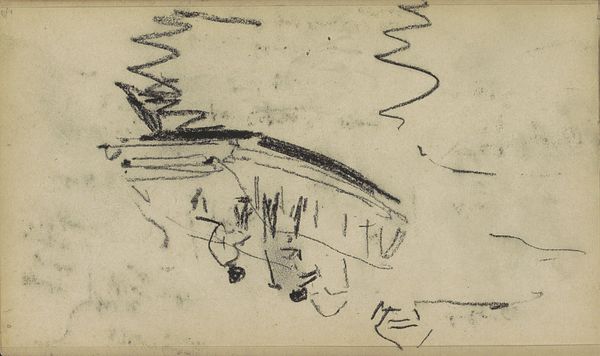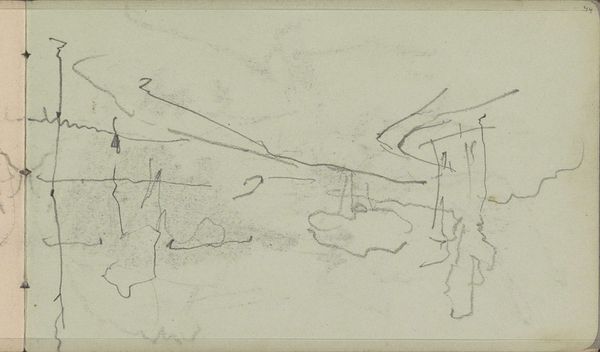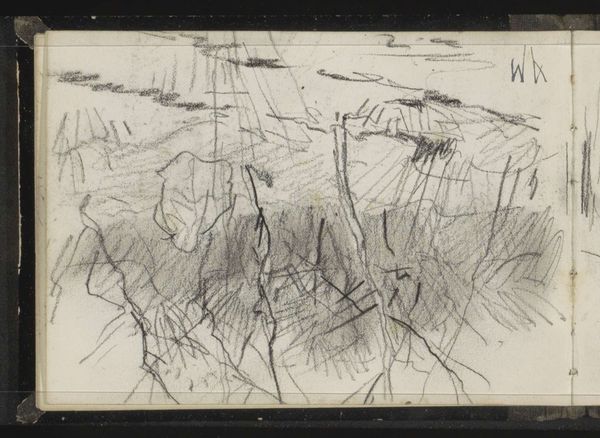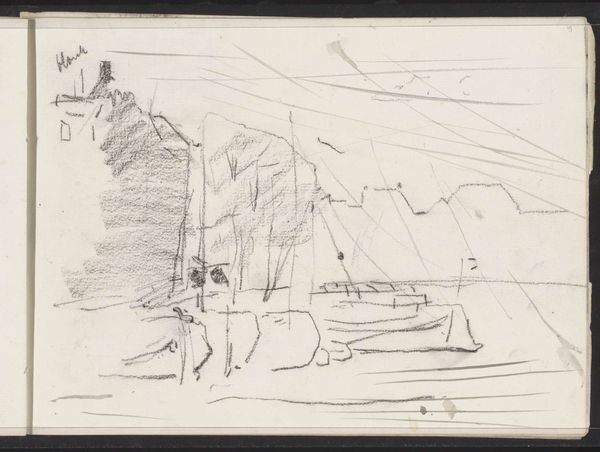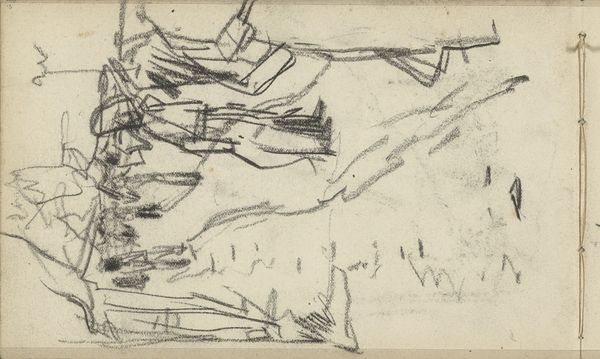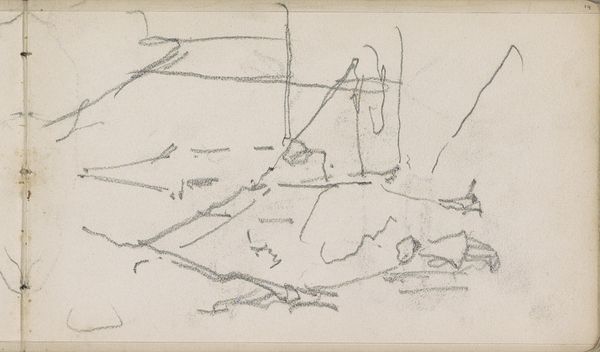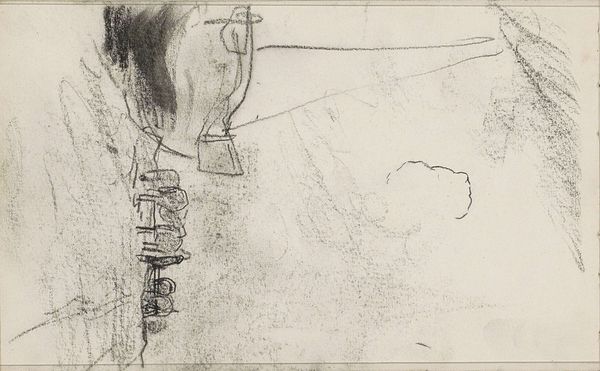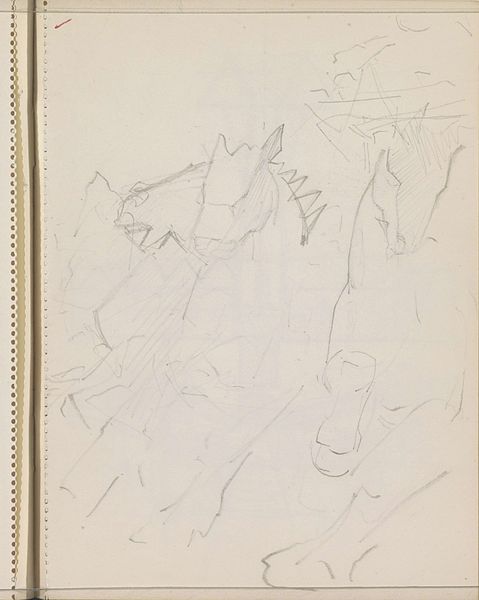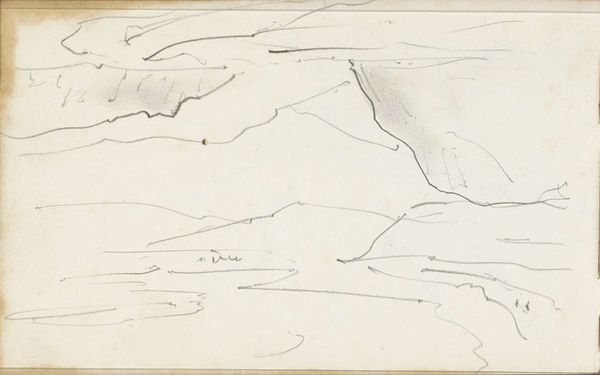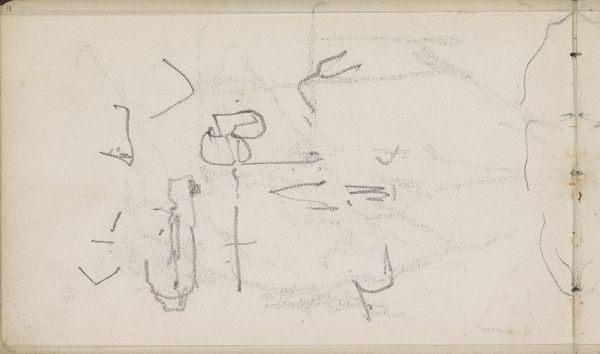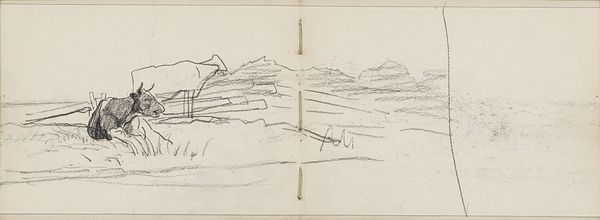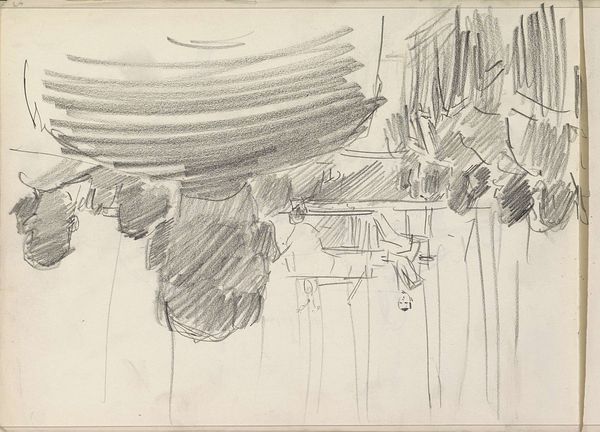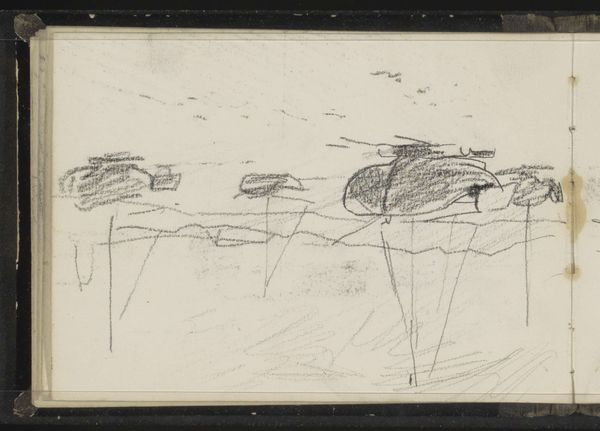
Dimensions: support: 241 x 289 mm
Copyright: © Tate | CC-BY-NC-ND 4.0 DEED, Photo: Tate
Curator: Victor Pasmore's drawing, Porthmeor Beach, St Ives, captures the Cornish coastline with a striking simplicity. What's your immediate take? Editor: It feels like a memory, doesn't it? Faded ink, minimalist lines. Like a postcard you find tucked away, hinting at a place and time just out of reach. Curator: Pasmore's work reflects the broader artistic currents of the mid-20th century in Britain, particularly the move toward abstraction and a focus on line and form. The setting, St. Ives, was a significant artistic hub. Editor: Funny, you mention abstraction. I see that coastline, feel the wind even, but it's reduced to its essence. Those angular rocks! He's found the architecture of the beach. Curator: And Pasmore was part of a larger move to redefine British art, linking it more closely to international movements while still reflecting a specific sense of place. Editor: It's a quiet revolution, isn't it? A gentle subversion of landscape painting, all whisper and suggestion. I appreciate its deceptive simplicity. Curator: Indeed. A lot of art of this era was challenging the status quo, politically and aesthetically. Editor: Well, I'm glad to see art can be both challenging and a relaxing beach scene at the same time.
